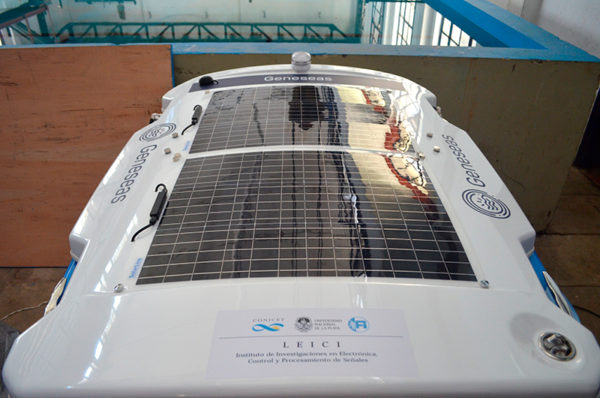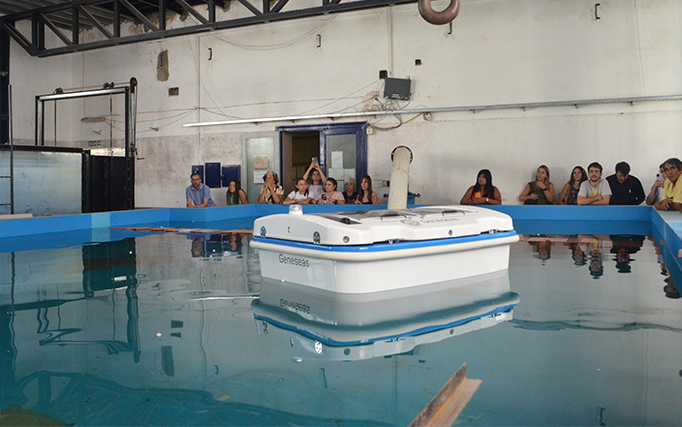From pv magazine Latin America
Engineers from the Electronics, Control, and Signal Processing Research Institute (LEICI) at the UNLP and environmental protection company Recyclamer Pampa Argentina have developed a solar-powered robot that collects waste from water bodies and surveys hydro-environmental variables.
“The robot has the capacity to clean waste on the surface and up to 40 cm deep, in bodies of water such as rivers, lagoons, and ports,” LEICI researcher Juan Luis Rosendo said. “Macro-plastics (bottles, bags), micro-plastics, and floating hydrocarbons, which are among the main pollutants in water courses, are usually found at this depth,” he explained.
The solar panels located on the deck of the device, which resembles a small catamaran without sails, can recharge its batteries while the robot operates.
Recyclamer Pampa Argentina contributed with its experience in waste treatment and cleaning of water bodies, while LEICI automated the system.
This automation “consisted of the design, sizing, and electronic integration of a modular hardware architecture on board (speed controllers, computer, sensors, antenna, etc.), and the development of the control logic to achieve robot autonomy,” Rosendo added.”
Recyclamer Pampa Argentina aims to commercialize the robot in Latin America and the Caribbean.

This content is protected by copyright and may not be reused. If you want to cooperate with us and would like to reuse some of our content, please contact: editors@pv-magazine.com.




1 comment
By submitting this form you agree to pv magazine using your data for the purposes of publishing your comment.
Your personal data will only be disclosed or otherwise transmitted to third parties for the purposes of spam filtering or if this is necessary for technical maintenance of the website. Any other transfer to third parties will not take place unless this is justified on the basis of applicable data protection regulations or if pv magazine is legally obliged to do so.
You may revoke this consent at any time with effect for the future, in which case your personal data will be deleted immediately. Otherwise, your data will be deleted if pv magazine has processed your request or the purpose of data storage is fulfilled.
Further information on data privacy can be found in our Data Protection Policy.